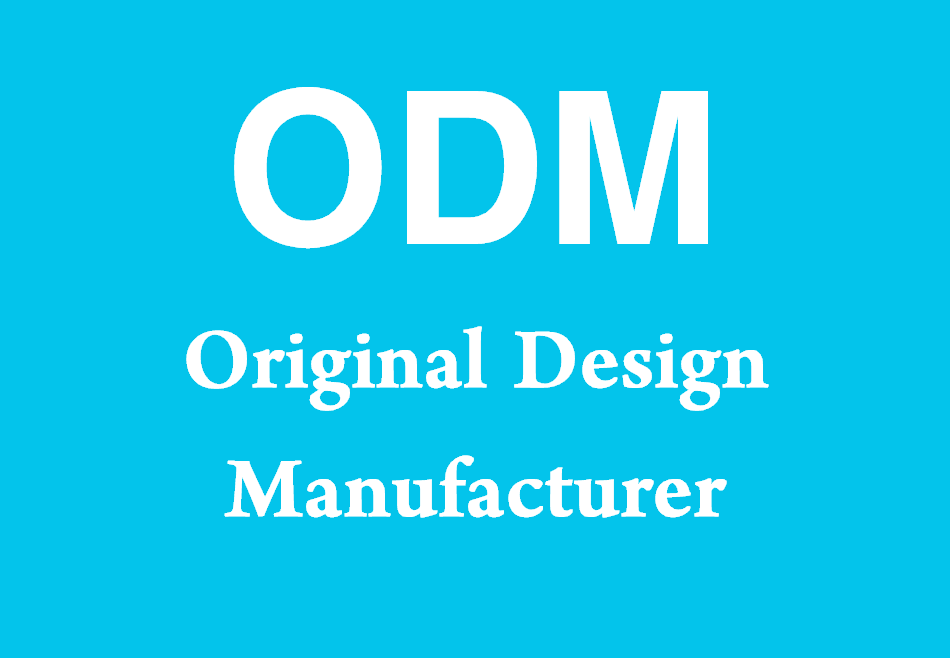When sourcing products from China, understanding whether your supplier is a genuine manufacturer or simply a middleman can make a significant difference in terms of product quality, cost, and overall reliability. Manufacturers produce goods directly, while middlemen act as intermediaries, adding additional costs and potential miscommunication to the supply chain. Determining the true nature of your supplier helps you establish more efficient and cost-effective supply chain partnerships.
This guide will help you understand the differences between manufacturers and middlemen, outline the benefits and drawbacks of each, and provide practical strategies for identifying the type of supplier you are working with.

Types of Suppliers in the Chinese Market
Manufacturers
Characteristics of Manufacturers
Manufacturers are companies that own production facilities and are directly responsible for producing the goods. They possess the equipment, workforce, and technical expertise needed to manufacture a specific range of products. Manufacturers typically have greater control over quality and can offer more customization options, as they are directly involved in the production process.
Manufacturers can range from small factories producing niche products to large-scale facilities that supply goods to well-known global brands. When dealing with manufacturers, you have the benefit of direct communication with those responsible for production, which can result in more favorable pricing and better quality control.
When to Choose a Manufacturer
Choosing a manufacturer is ideal if you require a high level of customization, consistent quality, and the ability to directly influence production. Working with a manufacturer also allows for better negotiation on price since there are no intermediaries adding markups. For businesses that want control over materials, processes, and quality, manufacturers are the best choice.
However, dealing directly with manufacturers often requires larger minimum order quantities (MOQs) and may involve longer lead times due to their production schedules.
Middlemen (Trading Companies and Agents)
Characteristics of Middlemen
Middlemen, including trading companies and sourcing agents, do not own production facilities. Instead, they act as intermediaries between the buyer and the manufacturer. They may offer a range of products from various factories and can provide value-added services such as logistics, consolidation of goods, and quality inspection.
Trading companies often present themselves as manufacturers to secure clients. They usually source products from multiple factories and may add a markup to the price they receive from the original manufacturer. Middlemen can be helpful for buyers who do not have the time or expertise to source directly from factories, as they simplify the process and often manage the logistics involved.
When to Use a Middleman
Middlemen can be a good option if you need to source a wide range of products from different categories, have smaller order quantities, or want someone to manage the entire procurement process on your behalf. Trading companies can help reduce complexity by managing relationships with multiple suppliers, handling quality inspections, and ensuring timely delivery.
However, the cost of working with middlemen is usually higher due to the added markups. Additionally, dealing with intermediaries may mean you have less direct control over production quality and lead times.
Differences Between Manufacturers and Middlemen
Cost Implications
Price Markups
One of the primary differences between manufacturers and middlemen is the pricing structure. Manufacturers typically offer the best pricing since you are buying directly from the source. Middlemen add their profit margins to the base cost, which can significantly increase the overall price of the goods.
If cost efficiency is your primary concern, working directly with a manufacturer is often the better choice. However, trading companies might be able to provide lower MOQs, which can help balance costs for smaller businesses or new ventures.
Hidden Fees
Middlemen may also add hidden fees to cover logistics, coordination, and other value-added services. It is important to clarify all potential costs when working with a middleman to ensure that there are no surprises later on.
Control Over Production and Quality
Direct Oversight with Manufacturers
When working with manufacturers, you have more direct oversight of the production process. This direct communication allows for greater control over product specifications, material selection, and quality standards. You can work closely with the manufacturer to resolve issues as they arise, making it easier to ensure that products meet your expectations.
Limited Control with Middlemen
When dealing with middlemen, you have limited visibility into the actual production process. This can lead to inconsistencies in quality, as you may not know which factory is producing your goods or how quality control is managed. Middlemen may switch suppliers without your knowledge, leading to variations in the final product.
Lead Times and Flexibility
Production Schedules
Manufacturers often have strict production schedules, especially during peak seasons. As a result, lead times may be longer, particularly for smaller buyers who may not have priority in the production queue. However, working directly with a manufacturer allows for better negotiation regarding lead times once a strong relationship is established.
Flexibility Offered by Middlemen
Middlemen can offer greater flexibility in terms of lead times, especially if they source from multiple factories. If one manufacturer is busy, a middleman can source from another supplier to meet your deadlines. This flexibility can be particularly beneficial for businesses with fluctuating demand or urgent delivery needs.
How to Determine If Your Supplier Is a Manufacturer or Middleman
Conducting Research on Your Supplier
Supplier Profile and Website
Start by examining the supplier’s website and online profiles. Manufacturers often provide detailed information about their production facilities, equipment, certifications, and the types of products they specialize in. Look for photos of production lines, quality control certifications, and factory details, which are indicators of genuine manufacturing capabilities.
Middlemen, on the other hand, tend to offer a wide range of products that span different categories, which may indicate that they are sourcing from multiple manufacturers. If the supplier offers too many unrelated products, it is likely that they are a trading company rather than a manufacturer.
Business License and Registration
Request the supplier’s business license and registration details. In China, manufacturers have specific business licenses that specify their business scope, including manufacturing activities. A trading company’s license will typically indicate that they are involved in trading or wholesale activities rather than production.
Using tools such as the National Enterprise Credit Information Publicity System (NECIPS) can help verify the authenticity of a supplier’s license and determine if they are genuinely registered as a manufacturer.
Asking Direct Questions
Factory Location and Visits
Ask the supplier about the location of their factory and whether you can visit their production facilities. A genuine manufacturer will be open to factory visits and will provide specific details about their production site. Visiting the factory is one of the best ways to verify if a supplier is truly a manufacturer.
Middlemen are less likely to facilitate factory visits and may provide vague or inconsistent information about the production location. If a supplier hesitates to provide factory details or make arrangements for a visit, it is a red flag that they may not be a direct manufacturer.
Production Capabilities and MOQs
Ask detailed questions about the production process, including lead times, production capacity, and equipment used. Manufacturers will be able to provide specific information about their production capabilities and may require higher minimum order quantities (MOQs) due to the nature of their operations.
Middlemen may provide a wide range of MOQ options, often lower than those of manufacturers, as they source from multiple factories. If the supplier appears overly flexible with order quantities, it may indicate that they are a middleman.
Utilizing Third-Party Verification Services
On-Site Audits
Third-party verification services such as SGS or Bureau Veritas can conduct on-site audits to verify whether the supplier has genuine manufacturing capabilities. These audits assess the supplier’s facilities, machinery, workforce, and production processes, providing you with detailed insights into whether they are a manufacturer or a middleman.
An on-site audit report will help you determine if the supplier has the necessary infrastructure to produce the goods in-house or if they are outsourcing production to another factory.
Supplier Verification Reports
Some online platforms and verification services offer supplier verification reports that include information about the supplier’s business scope, ownership, and production capabilities. Using these reports helps ensure that you have accurate information about the supplier before entering into a contract.
Advantages and Disadvantages of Working with Manufacturers vs. Middlemen
Advantages of Working Directly with Manufacturers
Cost Savings
Working directly with a manufacturer eliminates the additional costs associated with middlemen. This allows you to negotiate better pricing and reduce the overall cost of goods, which is particularly important for businesses with thin profit margins.
Quality Control
Direct communication with the manufacturer allows you to ensure that quality standards are met. You can conduct factory visits, oversee the production process, and directly address any quality issues that arise.
Customization Options
Manufacturers are better equipped to offer customization options, as they are directly responsible for the production process. This allows for more flexibility in product design, materials, and specifications.
Disadvantages of Working Directly with Manufacturers
Higher MOQs
Manufacturers often require higher minimum order quantities to justify the cost of production. This can be a barrier for small businesses or startups that do not have the capacity to place large orders.
Complexity of Communication
Working directly with a manufacturer requires managing all aspects of production, logistics, and quality control. This can be challenging, especially if there are language barriers or if the buyer lacks experience in international sourcing.
Advantages of Working with Middlemen
Simplified Procurement
Middlemen manage many aspects of the sourcing process, including finding factories, negotiating terms, and overseeing logistics. This makes the process simpler, especially for buyers who are new to sourcing from China or who lack the resources to manage complex supply chains.
Lower MOQs and Flexibility
Trading companies and middlemen often offer lower MOQs, making it easier for small businesses to get started. They may also provide more flexibility in terms of order volume and product variety.
Disadvantages of Working with Middlemen
Increased Costs
The added convenience of working with middlemen comes at a cost, as they add their own markup to the products. This can result in higher prices compared to sourcing directly from a manufacturer.
Lack of Direct Control
Working with middlemen means having less control over the production process, quality, and lead times. This can lead to inconsistencies in product quality, especially if the middleman changes suppliers without notifying the buyer.






